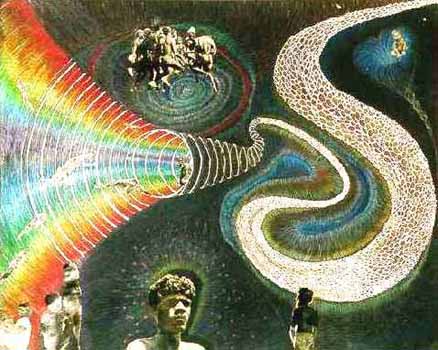Well, at last I have got round to reconstructing my entire blog on blogspot, and from now on, although I shall also be using my Opera blog as a back up, I shall be writing with Blogger, or Blogspot, or whatever it calls itself, as my main blog. So let it be known!
Let me start by talking about two books I have started reading recently. One of them is The Myth of Sisyphus by Albert Camus, and one is The End of Nature by Bill McKibben. The first is a philosophical treatise on suicide and the absurd, and purports to deal with the fundamental question of whether life is worth living. The second is a book about global warming. Both of these books are related to what I hope will be my next novel, namely, Domesday Afternoon, which is currently still in tentative note form.

In order to explain exactly how they are related to this project, it would perhaps be easiest for me to describe a phone conversation that I had with a friend yesterday. I won’t go into details, but he told me that he felt his recent lack of energy was due to his neglecting a pet project of his. “Do you think, then, it’s important to hold on to our dreams?” I asked. His reply was in the affirmative. This is, in fact, something I have myself been pondering lately.
This is probably not an exact quote, but William Burroughs wrote something like the following: “You need your dreams. They are a biologic necessity and your lifeline into space.” He went on to criticise certain scientists who have suggested that it is healthier to forget ones dreams (Burroughs very much identifies our literal, nocturnal dreams with our dreams in the broader sense). “Sure, sure, forget your dreams,” mocks Burroughs, “And make arrangements with a competent mortician.”

I began to explain to my friend how I have always felt the same, that it is important to hold onto one’s dreams, but that recently I have been having trouble reconciling this belief with the ecological Armageddon that the human race now faces. After all, what difference does it make if I write a novel, however good it might be, when the person reading it is swept away by a tidal wave the next moment. It is a particularly difficult dilemma because it seems to me that the destruction of the Earth now taking place is a by-product of personal ambition, of simply wanting things for oneself, and to hell with the future. The desires of the ego lead us to pursue success, material comfort, acclaim and so on, which in turn leads to a civilisation that uses up so much of the Earth’s resources that it is impossible to maintain over any great length of time. So where do my petty little dreams fit into all of this?
Well, I don’t have an easy answer for that, but I do feel that if I simply gave up on writing, gave up on my dreams, that wouldn’t do much good either. Somehow I have to incorporate and awareness of our ecological – and by extension, spiritual – crisis into the writing I am doing, which is my true life’s work. I have to find a way of confronting that crisis in the only thing that I am good at. So the novel Domesday Afternoon deals with a worst case scenario of ecological disaster, and the things in the human psyche that brought it about. But, if such a disaster, in the end, cannot be averted, then the work is still useless. Useless unless it somehow also deals with the question that Camus is facing in The Myth of Sisyphus. Is life worth living? In Camus’ case, he was dealing with the question of suicide. In my case, I must deal with the very similar question of whether it is possible to find meaning in life when on the brink of the apocalypse. As I said to my friend, I have to write in such a way that it is actually worth someone’s while to read what I’ve written the moment before they are swept away by a tidal wave. “Is that really what you think before you sit down to write?” he asked, amused. I answered in the affirmative.
